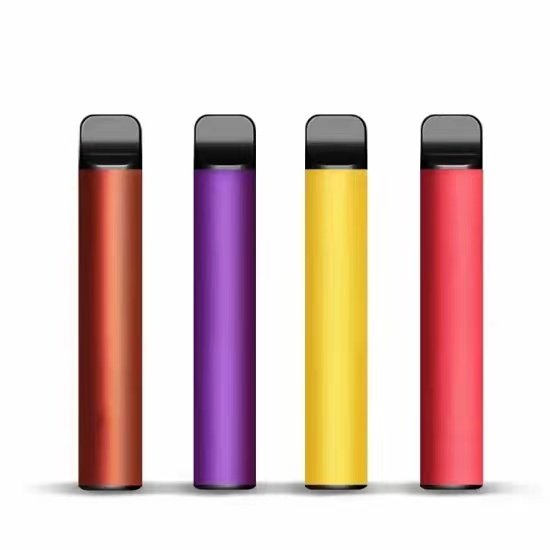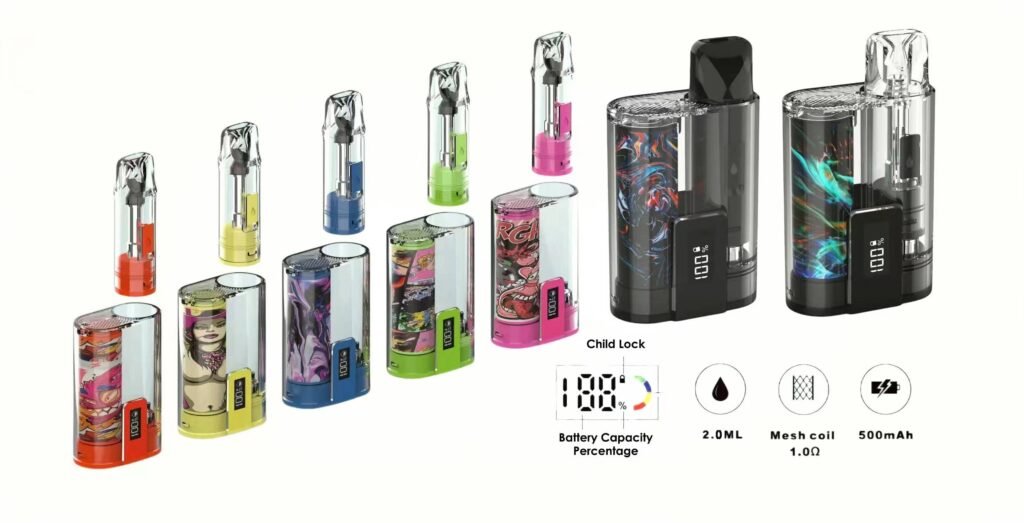The UK government officially implemented a ban on disposable e-cigarettes on June 1st, 2025, which has sparked discussions about the future of vaping in the country. While this decision aims to reduce the health and environmental risks associated with these products, it also presents challenges for businesses and consumers. In this article, we’ll break down the potential impacts of the ban, explore why the government has decided to take action, and examine how industry players are responding to the new regulations.
The government’s move to ban disposable e-cigarettes might be seen as a step toward reducing harm, but will it truly address the root causes of health issues associated with vaping? Let’s dive deeper into the issue.
Table of Contents
- What Exactly is Disposable Vaping?
- Why is the Ban Happening?
- How Will the Ban Impact Public Health?
- What is the Environmental Impact of Disposable Vaping?
- What Will be the Impact on the Vaping Industry?
- How Are Vape Wholesalers and Brands Responding?
- Conclusion
What Exactly is Disposable Vaping?
Disposable e-cigarettes are single-use devices that come pre-filled with e-liquid and require no refilling or maintenance. These devices have become increasingly popular in the UK, particularly due to their convenience, affordability, and variety of available flavors. They offer a quick and easy vaping experience for both experienced vapers and beginners.
A key feature of disposable vapes is that they are “ready to use” straight out of the box. This simplicity makes them attractive to users who want a hassle-free experience, as there’s no need to worry about refilling or replacing coils, which are necessary for traditional vaping devices.
The market for disposable vapes in the UK has seen explosive growth in recent years, with products often marketed as safer alternatives to traditional tobacco smoking. However, concerns have emerged about their growing popularity, especially among young people who might be tempted to try vaping without the risks associated with smoking conventional cigarettes.

As disposable vapes flood the market, some critics point out that the ease of access and variety of appealing flavors, such as fruity and candy flavors, are enticing younger demographics. This raises concerns about nicotine addiction and the long-term health effects of vaping.
Why is the Ban Happening?
The ban on disposable e-cigarettes is primarily driven by two major concerns: public health risks and environmental impact.
- Health Concerns: The health effects of vaping are still being studied, but evidence suggests that the inhalation of vaporized chemicals could lead to lung damage and other health issues. While many consider vaping less harmful than smoking traditional cigarettes, it’s far from risk-free. Disposable vapes, in particular, have been scrutinized due to their widespread use among adolescents and young adults.
- Environmental Concerns: Disposable e-cigarettes also pose a significant environmental threat. These products are typically made from plastic and contain lithium-ion batteries, which are difficult to recycle. With millions of disposable vapes entering the market every year, the environmental toll is substantial, contributing to growing concerns about plastic waste and e-waste.
The UK government has recognized these issues and, as part of its broader strategy to reduce plastic waste, has taken action to phase out disposable vapes. This move aligns with the country’s broader environmental goals, which include reducing the amount of plastic waste and promoting sustainability.
How Will the Ban Impact Public Health?
The government’s aim with this ban is to protect public health, particularly by reducing the accessibility of e-cigarettes among young people. According to research, nicotine addiction can be harmful at any age, but it’s particularly detrimental to young, developing brains. By limiting access to disposable vapes, the government hopes to prevent the initiation of nicotine use in adolescents.
In the short term, the ban may reduce the number of young people who become addicted to nicotine. However, there are concerns about how this could impact adults who use disposable e-cigarettes as a smoking cessation tool. Many smokers have turned to vaping as a less harmful alternative to traditional tobacco products, and the ban may limit their options for quitting.
Additionally, some believe that banning disposable e-cigarettes could drive the market underground, leading to the rise of illegal and unregulated products. If illegal disposable vapes become widespread, it could create a new set of public health risks.
Despite these concerns, many public health experts argue that the ban could ultimately save lives by reducing nicotine addiction rates and discouraging youth from taking up vaping in the first place.
What is the Environmental Impact of Disposable Vaping?
As mentioned earlier, disposable e-cigarettes contribute significantly to plastic waste. Each disposable vape is a single-use product that ends up in landfills once it’s used. With billions of disposable vapes being sold annually in the UK alone, the environmental impact is alarming. The plastic waste from these products can take hundreds of years to decompose, leading to long-term environmental harm.
Furthermore, disposable vapes contain lithium-ion batteries, which, if not properly disposed of, can leak harmful chemicals into the environment. The combination of plastic waste and e-waste created by these products presents a serious environmental challenge.
The UK government’s decision to ban disposable vapes is an attempt to address these environmental concerns by reducing the number of single-use products on the market. By eliminating disposable vapes, the government hopes to significantly reduce e-waste and plastic waste, helping to create a cleaner, more sustainable environment.
What Will be the Impact on the Vaping Industry?
The disposable vape ban is expected to have a significant impact on the vaping industry. Many businesses involved in the production and distribution of disposable e-cigarettes will need to adapt quickly to the new regulations. Companies that rely heavily on disposable vapes will likely experience a decline in sales, while others may pivot toward producing alternative products that comply with the new regulations.
Some vaping brands are already preparing for this shift by focusing on refillable e-cigarettes, which are not impacted by the ban. These products allow users to replace the e-liquid and coils, offering a more sustainable option for long-term vaping. As the market for disposable vapes shrinks, refillable devices may see a rise in popularity.
In the long term, this shift could lead to an overall more sustainable vaping industry, with businesses moving toward eco-friendly and reusable products. Companies that can innovate and adapt to these changes may thrive in the post-ban environment.
How Are Vape Wholesalers and Brands Responding?
Since the ban on disposable e-cigarettes took effect on June 1st, 2025, many vape wholesalers and brands have been working hard to adjust to the new regulations. Some have already started pivoting their product lines to focus on refillable e-cigarettes, while others are exploring new, innovative ways to meet consumer demand for alternative vaping options.
As an e-cigarette manufacturer that complies with the new regulations, we understand the challenges that both wholesalers and retailers face. At Rabbit Vape, we offer a range of products that meet the UK’s new standards, including eco-friendly, refillable vaping solutions that provide users with a sustainable alternative to disposable vapes.
If you’re a wholesaler or retailer looking for compliant products to meet the new UK regulations, we are happy to help. Reach out to us at info@rabbitvape.com for more information on our regulated and eco-friendly e-cigarette offerings.
Conclusion
The UK’s decision to ban disposable e-cigarettes is a significant move aimed at reducing public health risks and environmental harm. While the ban may be beneficial in curbing youth vaping and reducing plastic waste, it also raises important questions about its impact on adult smokers who use vaping as a cessation tool. The full effects of the ban will only become clear over time, but it’s clear that the vaping industry will need to adapt to these new regulations.


